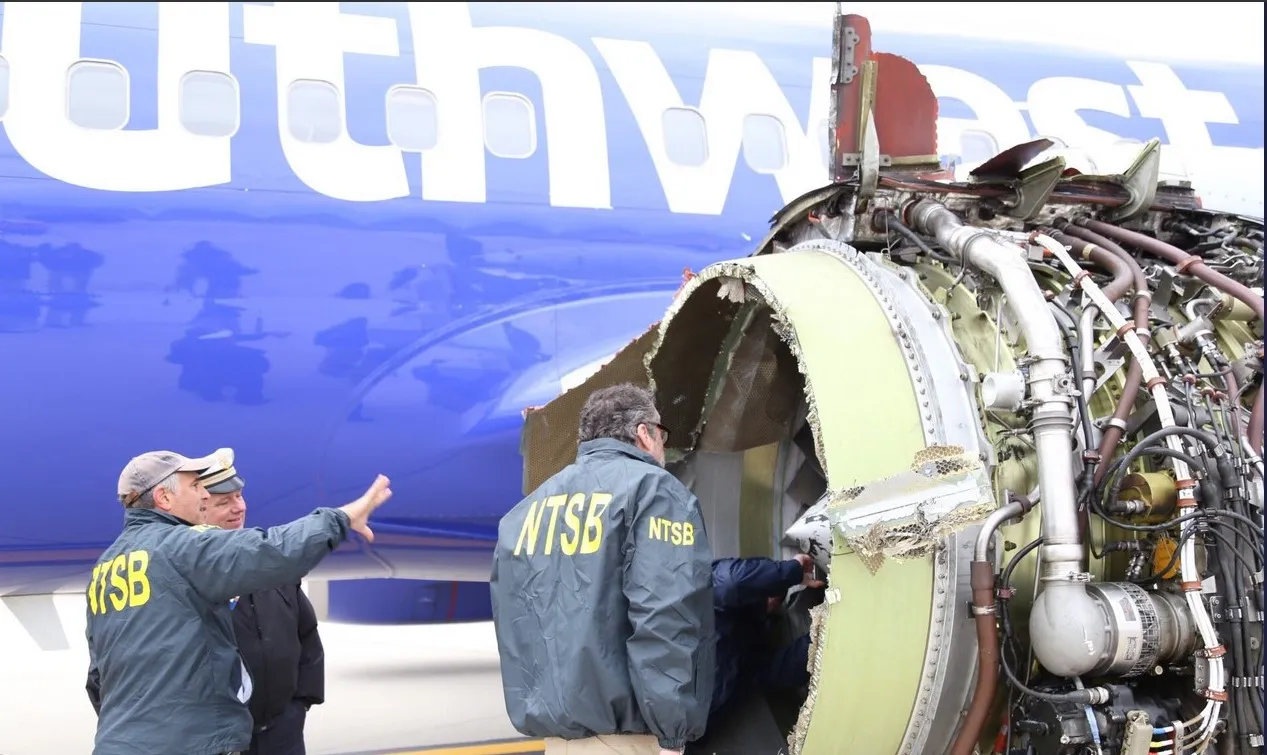
FAA to require Boeing 737 engine inspections after Southwest tragedy
Apr 19, 2018

Following a tragic incident involving a Southwest Airlines Boeing 737, the Federal Aviation Administration has mandated inspections of specific engine models used in the aircraft. This decision comes in light of safety concerns raised by the event, which highlighted potential vulnerabilities in engine performance. The FAA's directive aims to ensure the continued airworthiness of the Boeing 737 fleet and to prevent similar incidents in the future. Airlines are required to conduct thorough examinations of the affected engines to identify any signs of wear or damage, reinforcing the agency's commitment to passenger safety and operational integrity in the aviation industry.
The Federal Aviation Administration (FAA) has announced a new directive requiring airlines to conduct thorough inspections on Boeing 737 engines. This decision comes in the wake of a tragic incident involving Southwest Airlines, where engine failure led to an emergency landing. The FAA’s proactive measures are aimed at ensuring the safety of passengers and preventing similar occurrences in the future. In this article, we will delve into the specifics of the FAA's directive, the implications for airlines, and the importance of regular engine inspections.
Background of the Incident
On a recent flight operated by Southwest Airlines, an engine failure resulted in a dramatic situation, prompting an emergency landing. Fortunately, there were no fatalities, but the incident raised significant concerns about the safety of the Boeing 737 aircraft. The FAA's investigation into this incident highlighted the urgent need for more stringent engine inspection protocols to prevent such tragedies from happening again.
FAA Directive Overview
The FAA's directive mandates that all operators of Boeing 737 aircraft perform detailed inspections on specific engine components. This requirement is not only a response to the recent Southwest tragedy but also part of a broader initiative to enhance safety measures across the aviation industry. The inspections will focus on the following key areas:
- Engine fan blades
- Compressor components
- Fuel systems
- Exhaust systems
Importance of Engine Inspections
Regular engine inspections are crucial for maintaining the safety and reliability of aircraft. Engines are complex machines, and even minor issues can lead to catastrophic failures if left unchecked. The FAA emphasizes that these inspections are a proactive measure to identify potential problems before they escalate. By adhering to these inspection protocols, airlines can ensure that they are operating their fleets safely and efficiently.
Impact on Airlines
The FAA's new inspection requirements will have significant implications for airlines, particularly those operating Boeing 737 aircraft. Airlines will need to allocate resources for these inspections, which may involve increased maintenance costs and potential flight delays. However, the long-term benefits of ensuring passenger safety far outweigh the short-term challenges. By investing in proper engine maintenance, airlines can enhance their reputation and build passenger trust.
Cost Implications
While the exact costs associated with the mandated inspections will vary by airline, a comprehensive analysis suggests that these inspections could lead to increased operational expenses. Airlines will need to consider the following factors:
| Cost Factor | Estimated Cost |
|---|---|
| Labor for Inspections | $50 - $100 per hour |
| Replacement Parts | $10,000 - $30,000 per engine |
| Downtime for Inspections | Varies by aircraft availability |
Airlines must weigh these costs against the potential risks of not complying with the FAA's directive. Failure to conduct timely inspections could result in severe penalties, including fines or grounding of aircraft.
Industry Reactions
The aviation industry has largely welcomed the FAA's directive, recognizing the importance of prioritizing safety. Industry leaders have expressed their commitment to adhering to the new inspection protocols. Airlines are expected to collaborate with manufacturers and maintenance providers to ensure compliance with the FAA's requirements.
Future of Boeing 737 Safety
The FAA's decision to mandate engine inspections on Boeing 737 aircraft marks a significant step toward improving aviation safety standards. As technology advances, so too will the methods used for engine inspections. Innovations in aviation technology may lead to more efficient inspection techniques, reducing downtime and costs for airlines while enhancing safety.
Conclusion
In conclusion, the FAA's requirement for Boeing 737 engine inspections is a crucial move to enhance passenger safety following the Southwest tragedy. Airlines must take these inspections seriously and invest in their maintenance programs to mitigate risks. By doing so, they not only comply with regulatory requirements but also ensure the safety and trust of their passengers. As the aviation industry evolves, so too must its commitment to safety, making regular engine inspections an essential practice for all airlines.
Related Articles

Explore Thailand: The Best Islands to Visit for Paradise, Adventure, and Relaxation

The Ultimate Guide to the Best Islands in Thailand for Your Next Getaway

Do babies need passports? How to get a passport for a newborn

How to get a U.S. passport fast: here’s how to expedite the process

What is Mobile Passport Control: 5 reasons why you should use it

SENTRI vs. Global Entry: A detailed guide

Do you need a passport to go to the Bahamas? Let’s find out

Do you need a passport to go to Mexico? A detailed guide

Do you need a passport to go to Canada? We got the answer

Do You Need a Passport for a Cruise: An Essential Travel Guide

Booster Seat Requirements: All the Rules to Follow in Your Rental Car

What Are the World’s Most Powerful Passports, and How Does Yours Rank?

How to Take a Passport Photo at Home: A Helpful Guide

You've got to have heart! Southwest's new livery

Your opinion: Should water be free on low cost carriers?

Young women bolder than guys as solo travellers
